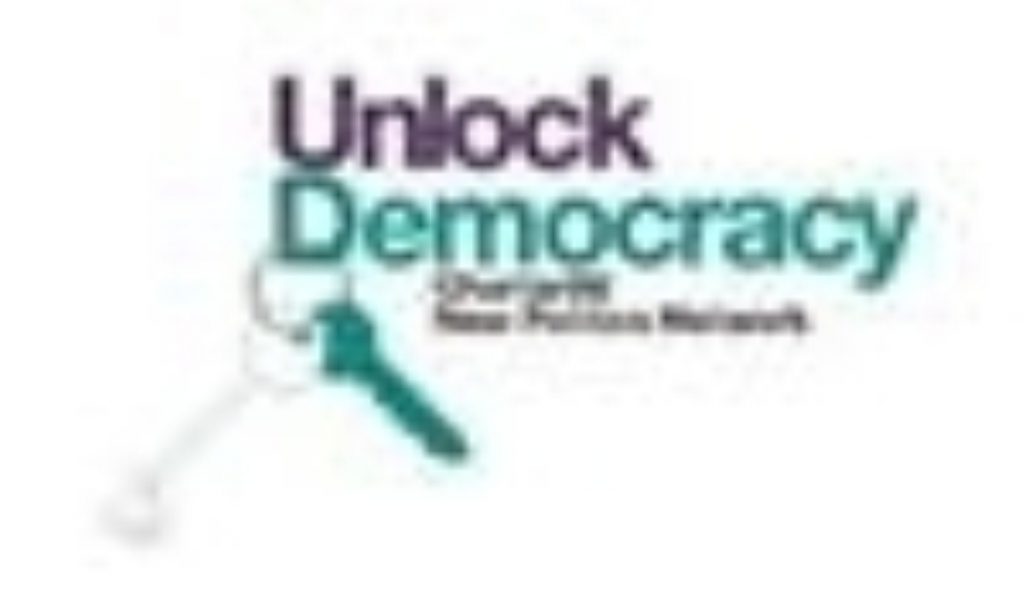Unlock Democracy: YouGov survey suggests that Euro elections turnout could be the highest ever
A new survey from YouGov has suggested that 50% of the electorate have definite plans to vote in Thursday’s European Parliament election, much higher than previous polls have suggested. Even accounting for inaccuracies in the voting register this suggests a nominal turnout of 43-45%. If this is replicated on Thursday, turnout will be highest ever for a European Parliament election in the UK (the 38% who voted in the last European Parliament election in 2004 was the previous high watermark).
The survey was commissioned by Vote Match (www.votematch.co.uk) the quick and easy online tool designed to help people decide how to vote – by matching their views to the views of the parties running for election. The report goes on to suggest that the youngest age group is the least inclined to vote. Only 28% of 18-24 year olds said that they would definitely be casting their vote. In contrast, 65% of 55+ year olds have definite plans to do so.
The survey also found that:
Only 11% of respondents were very confident that they understood the policy differences between the political parties standing in the European elections.
Nearly a quarter of those people (24%) that are unlikely to vote have been put off by the expenses scandal. This is a particular factor amongst those aged 35-54 (16% of 18-24 year olds).
23% of those that are unlikely to vote will choose to abstain because they do not understand what issues the parties stand for (33% of 18-24 year olds).
In a statement on the poll results Peter Facey of Vote Match commented:
“If these figures are anywhere near accurate we are likely to see the highest turnout for the European Elections since they began in 1979 and the biggest boost in a non-Westminster election since the days of the poll tax in 1990. While this is encouraging, the generational divide is startling and it is clear that a majority of people are not confident about the policy differences of the major parties.
“The MPs’ expenses scandal has clearly had a major impact but again, there is a clear generational divide. Amongst young people, it is a lack of knowledge of the issues themselves that appears to be discouraging them from voting. There appears to also be a gender divide here, with women less put off by the expenses scandal than men.
“Vote Match has been designed specifically to meet this clear demand for more information about policy issues in the run up to elections. Tens of thousands of people have so far used the short quiz to help them decide how to vote with many more expected over the next 48 hours.”
Notes
All figures, unless otherwise stated, are from YouGov Plc. Total sample size was 2072 adults. Fieldwork was undertaken between 29th May – 1st June 2009. The survey was carried out online. The figures have been weighted and are representative of all GB adults (aged 18+). YouGov is a member of the British Polling Council and abides by its rules.
About Vote Match – www.votematch.co.uk
1. Vote Match is an online tool designed to help people decide how to vote – by matching their views to the views of the parties running for election.
2. Vote Match is explicitly un-biased; the parties are invited to provide their own responses to the statements used in the tool, which form the basis of the metrics used to calculate the users’ results. The website is not designed to tell people who to vote for, but to give people information to make their own decision.
3. The Vote Match site is re-developed for every election. The site is currently modelled for the EU elections in June 2009. Vote Match will re-launch in time for the forthcoming General Election. The site design and communications strategy is intended to increase awareness and election turnout in the 18 – 35 demographic.
4. Vote Match is funded by a grant from the Joseph Rowntree Reform Trust. The Joseph Rowntree Reform Trust Ltd is a limited company that pays tax on its income, enabling it to give grants to promote political and democratic reform and defend civil liberties. Although founded by Joseph Rowntree, the Reform Trust is completely separate from the other institutions that bear his name, the Joseph Rowntree Foundation and the Joseph Rowntree Charitable Trust.
5. Vote Match is an Unlock Democracy project. Unlock Democracy is the UK’s leading organisation for democratic reform. It exists to promote a new culture of informed political interest and responsibility, paving the way for increased enthusiastic public participation. Unlock Democracy is a non-aligned organisation, committed to working inclusively across the political spectrum.
The Success Model
1. The Vote Match concept has been operated successfully in Germany, The Netherlands, Switzerland and Bulgaria.
. 5.1m users used Wahl-O-Mat in the 2005 Federal Election, Germany
. 4.7m users used Stemwijzer in the Netherlands 2006 General Election
2. Research based on Wahl-O-Mat found that as a result of using the tool, users were more likely to become actively involved in the election:
. 71.7% agreed with the statement that “I will probably talk about the result with friends and family.”
. 47.3% agreed that “Wahl-O-Mat has motivated me to collect further political information.”
. 7.8% agreed that “Actually I did not want to vote. Wahl-O-Mat has motivated me to go voting.”





-01.png)